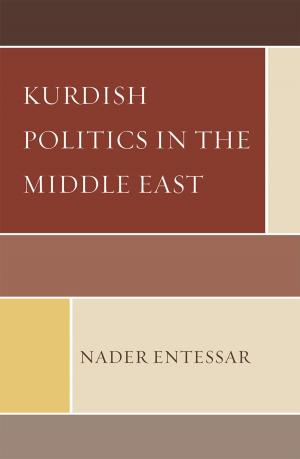Citizenship An Introduction to Social Ethics
Business & Finance, Business Reference, Business Ethics, Nonfiction, Social & Cultural Studies, Political Science, Government, Social Policy| Author: | Gregory P. Hawkins | ISBN: | 9781942639039 |
| Publisher: | Gregory P. Hawkins | Publication: | February 2, 2015 |
| Imprint: | Smashwords Edition | Language: | English |
| Author: | Gregory P. Hawkins |
| ISBN: | 9781942639039 |
| Publisher: | Gregory P. Hawkins |
| Publication: | February 2, 2015 |
| Imprint: | Smashwords Edition |
| Language: | English |
A detailed examination and homage to Milton Bennion’s exceptional treatise on social ethics and citizenship, first published in the early twentieth century, rewritten in part and edited in part by Gregory P. Hawkins, who makes the case that "Aspirational Ethics" should and may become the new mantra for the twenty-first century mind.
This little book came to me as a kind and thoughtful gift from a member of my staff— Michael Anderson. It was written nearly 100 years ago.
The first thing I noticed was that it was written by Milton Bennion. Milton Bennion died before I was born. His son, Lowell Bennion, is one of those rare people that became a legend to all whose path he crossed. He crossed my path.
I found the book to have great worth. Milton Bennion had spent years not merely thinking upon the subject of what he termed, “Social Ethics,” but teaching it to thousands of high school and college age youth. I have done the same.
The book obviously suffered from the massive change nearly a century of history would naturally bring. Yet, Milton Bennion had masterfully and succinctly synthesized history, philosophy and original thought into easily understood ideas that produced in the reader a desire, even an aspiration, to better living.
I found myself at once motivated, interested and occasionally in disagreement. It may have been the 100 years of separation or it may have been actual disagreement. I was compelled to think much more deeply upon a subject I had already taught and written upon—ethics. It was a very valuable exercise.
I decided to edit and republish the book. I have tried to stay as true to the original text as practicable.
Morals are the basic internal principles that inform and govern a person’s view of right and wrong, good and evil. Although morals are almost a universal force, they can be diverse in their application and definition–almost as diverse as individuals are from one another.
If we were to ask 100 ethicists what the definition of ethics is, we may well receive 147 different answers. For our purposes, we will use the working definition that “ethics are one’s discretionary behavior in relation to morals.”
We will refer to the creation of someone else’s rules as the “codification of ethics.” We will define codification as simply, “the creation of an organized set of rules that if violated have a negative consequence to the violator.” Although intended to improve the moral climate, the codification of ethics tends to decrease ethical choices.
Advances in technology are bringing the earth’s seven billion diverse inhabitants into contact with each other more and more frequently. We bump into each other, over and over again. The innumerable interactions mean people will witness more behavior that is wrong or evil. Therefore, there will be a growing cry, “There ought to be a law!”
However, codification alone will not result in more good behavior.
A detailed examination and homage to Milton Bennion’s exceptional treatise on social ethics and citizenship, first published in the early twentieth century, rewritten in part and edited in part by Gregory P. Hawkins, who makes the case that "Aspirational Ethics" should and may become the new mantra for the twenty-first century mind.
This little book came to me as a kind and thoughtful gift from a member of my staff— Michael Anderson. It was written nearly 100 years ago.
The first thing I noticed was that it was written by Milton Bennion. Milton Bennion died before I was born. His son, Lowell Bennion, is one of those rare people that became a legend to all whose path he crossed. He crossed my path.
I found the book to have great worth. Milton Bennion had spent years not merely thinking upon the subject of what he termed, “Social Ethics,” but teaching it to thousands of high school and college age youth. I have done the same.
The book obviously suffered from the massive change nearly a century of history would naturally bring. Yet, Milton Bennion had masterfully and succinctly synthesized history, philosophy and original thought into easily understood ideas that produced in the reader a desire, even an aspiration, to better living.
I found myself at once motivated, interested and occasionally in disagreement. It may have been the 100 years of separation or it may have been actual disagreement. I was compelled to think much more deeply upon a subject I had already taught and written upon—ethics. It was a very valuable exercise.
I decided to edit and republish the book. I have tried to stay as true to the original text as practicable.
Morals are the basic internal principles that inform and govern a person’s view of right and wrong, good and evil. Although morals are almost a universal force, they can be diverse in their application and definition–almost as diverse as individuals are from one another.
If we were to ask 100 ethicists what the definition of ethics is, we may well receive 147 different answers. For our purposes, we will use the working definition that “ethics are one’s discretionary behavior in relation to morals.”
We will refer to the creation of someone else’s rules as the “codification of ethics.” We will define codification as simply, “the creation of an organized set of rules that if violated have a negative consequence to the violator.” Although intended to improve the moral climate, the codification of ethics tends to decrease ethical choices.
Advances in technology are bringing the earth’s seven billion diverse inhabitants into contact with each other more and more frequently. We bump into each other, over and over again. The innumerable interactions mean people will witness more behavior that is wrong or evil. Therefore, there will be a growing cry, “There ought to be a law!”
However, codification alone will not result in more good behavior.















